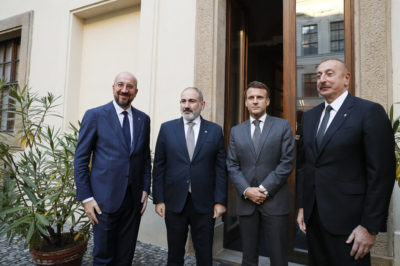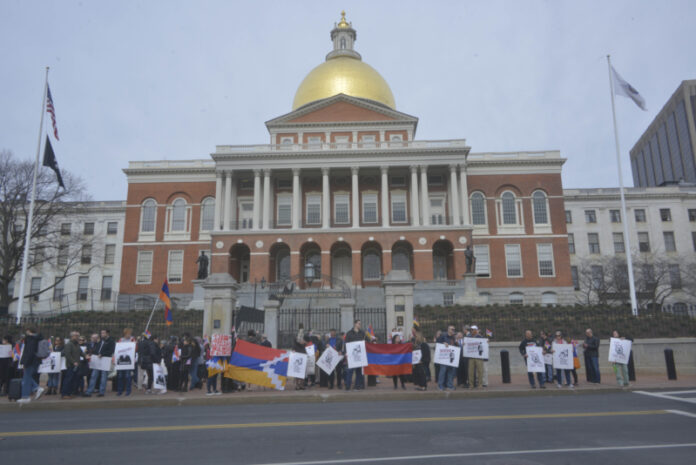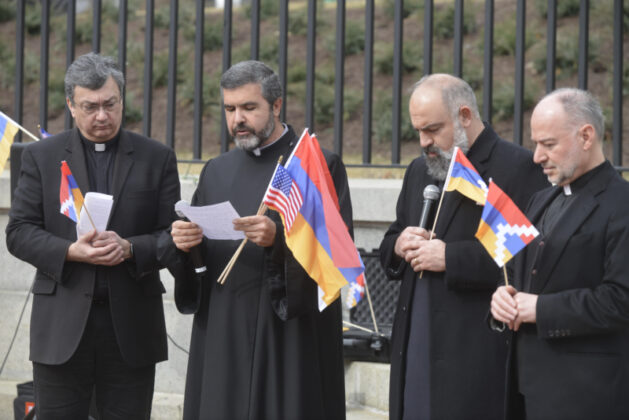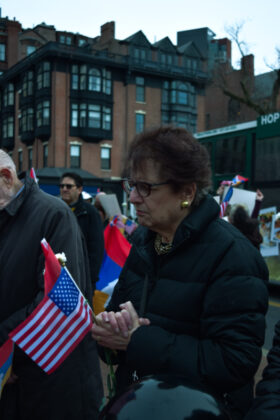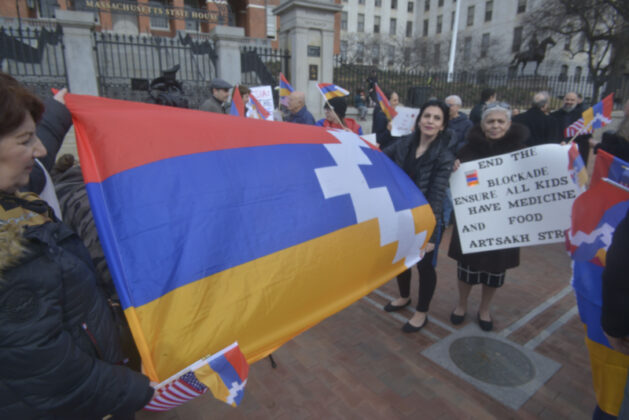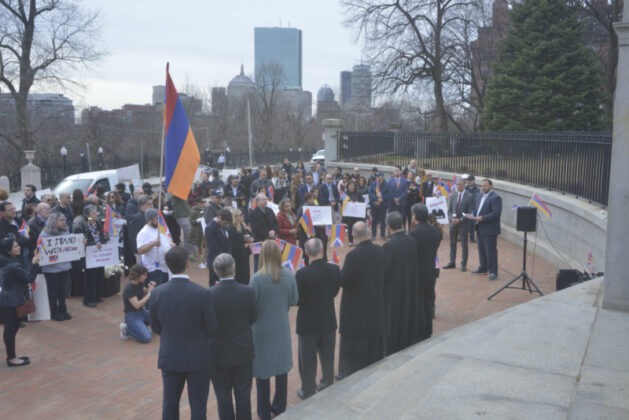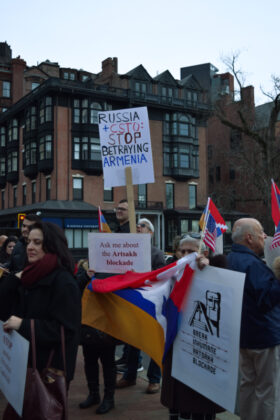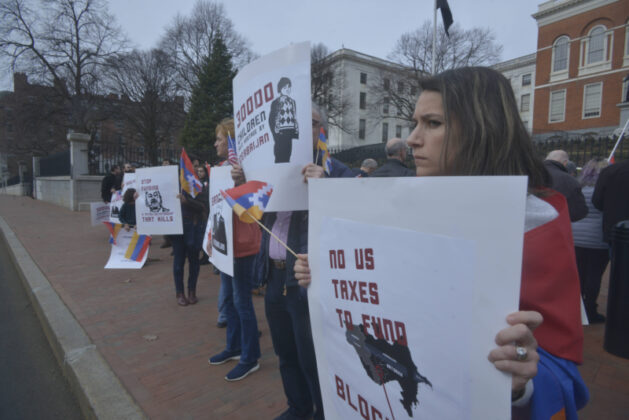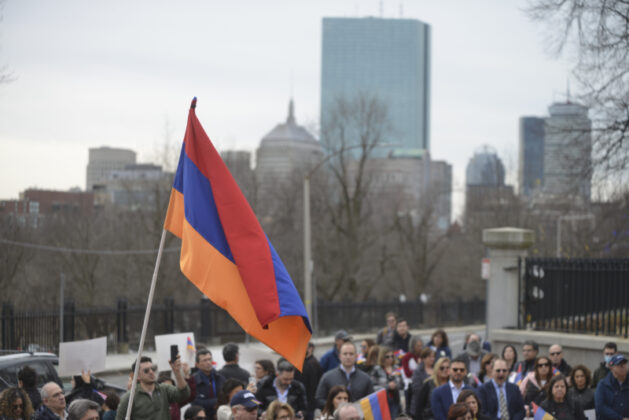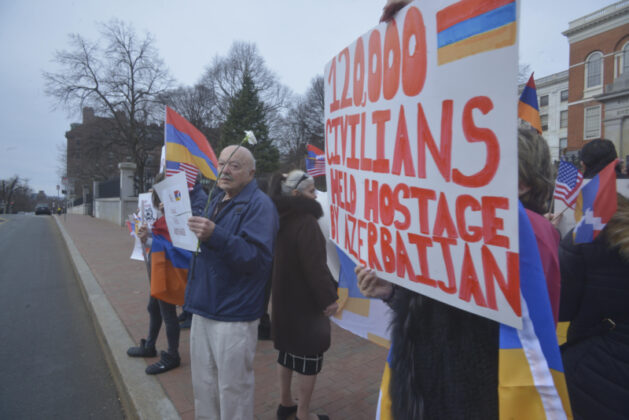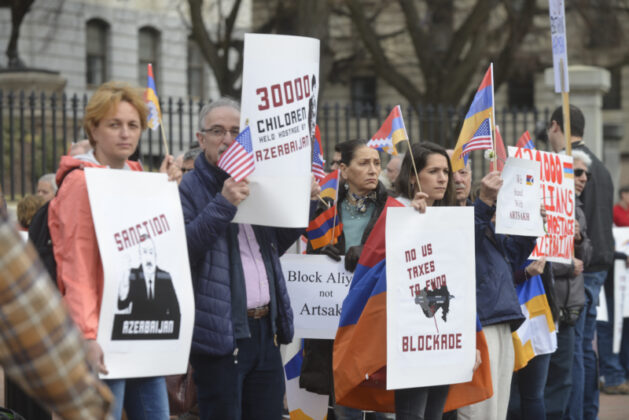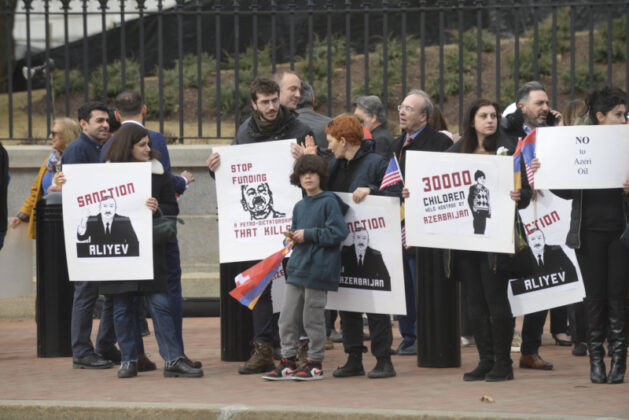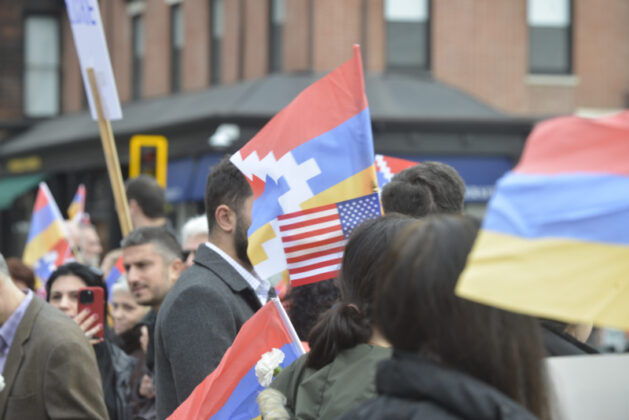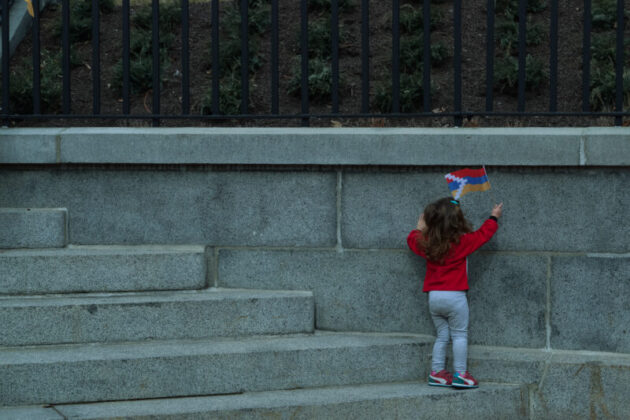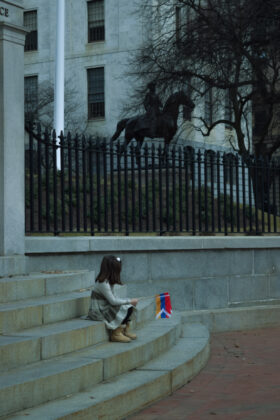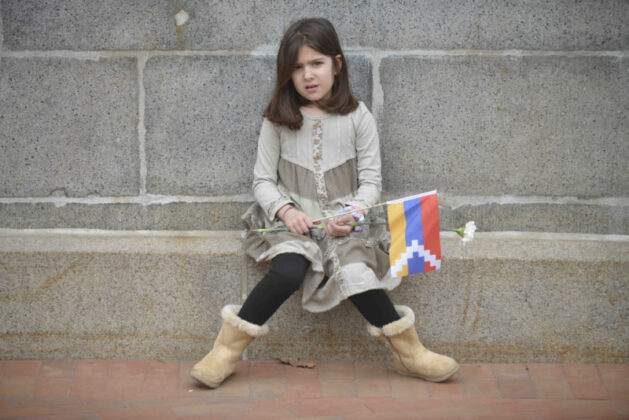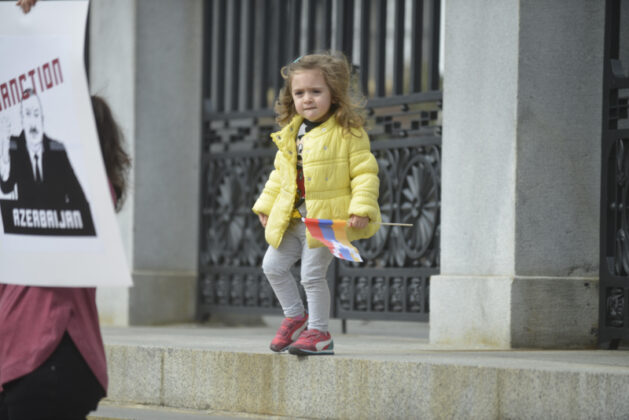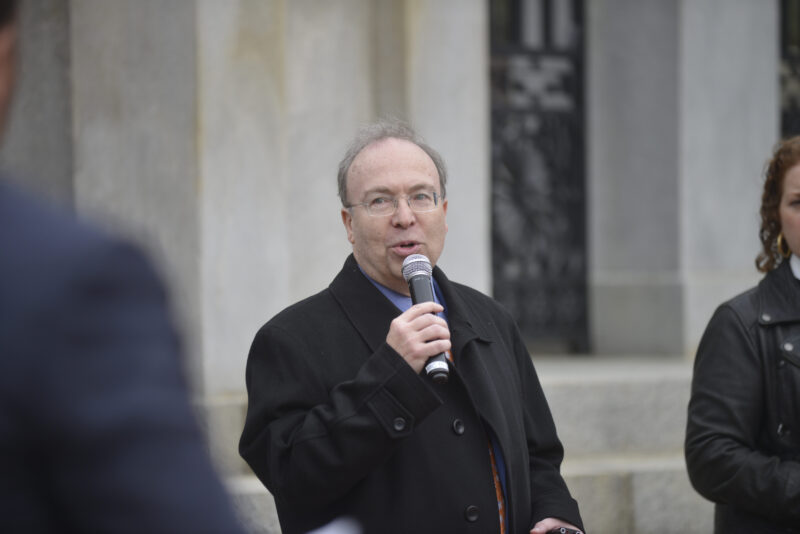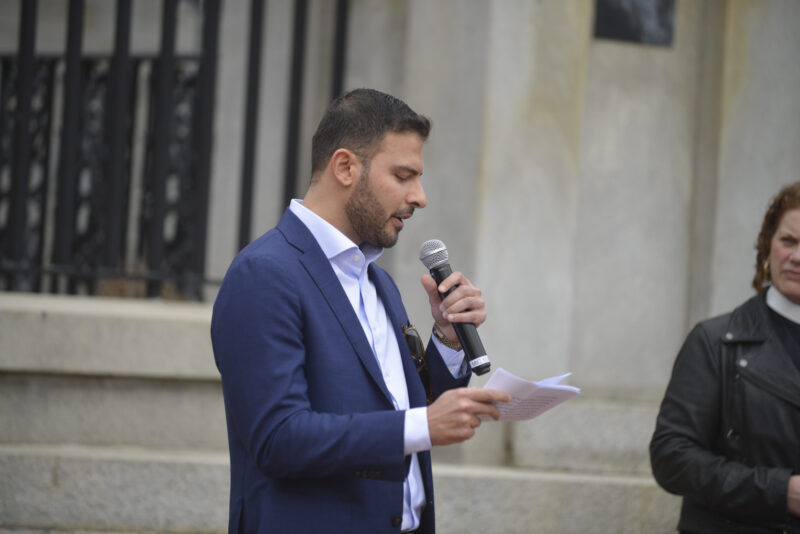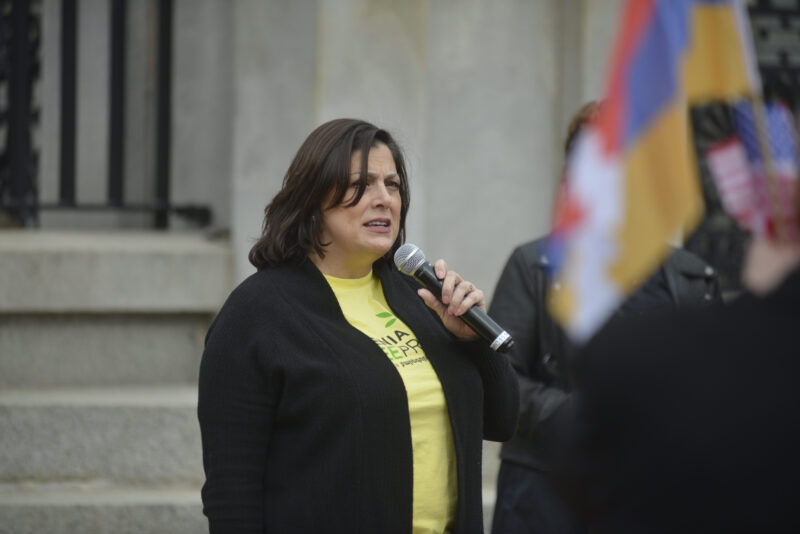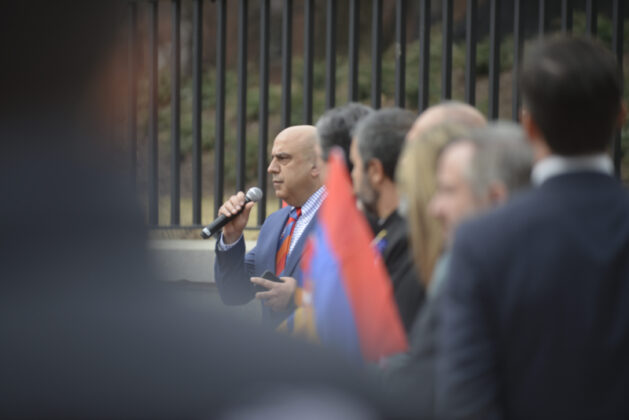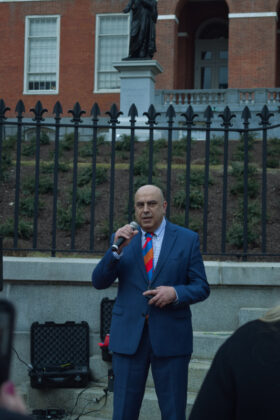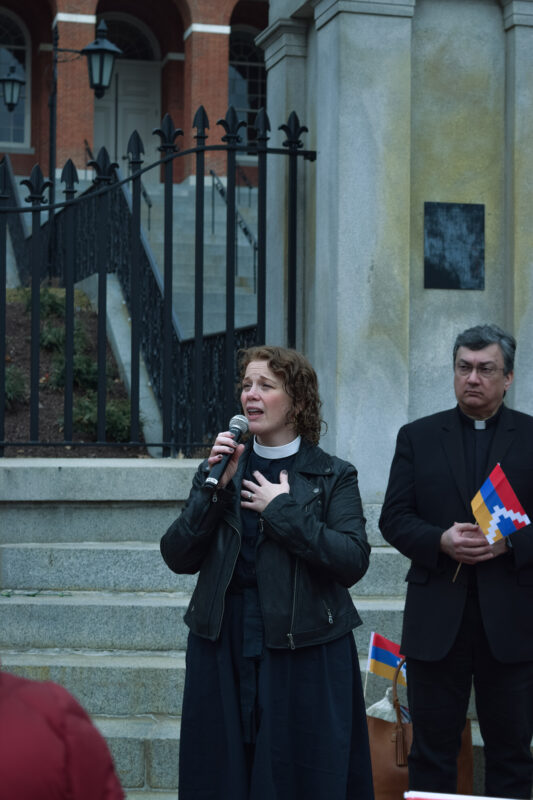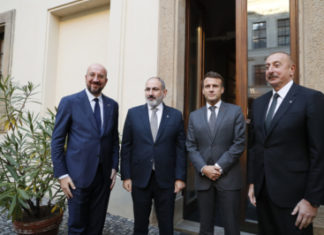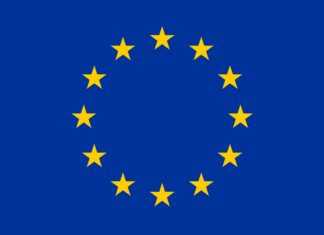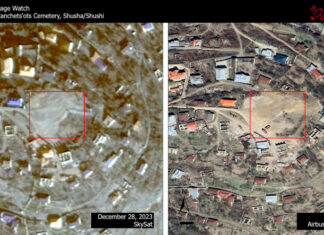BOSTON —Approximately two hundred members of the Boston Armenian community assembled in front of the Massachusetts State House in Boston on Thursday, February 16 to call for an end to the Azerbaijani blockade of Artsakh, humanitarian aid to the besieged Armenians and US sanctions on Azerbaijan. Representatives of several organizations of the community spoke before the gathered crowd, plus the large numbers of passersby in cars and on foot. The event was briefly reported on NBC10 Boston.
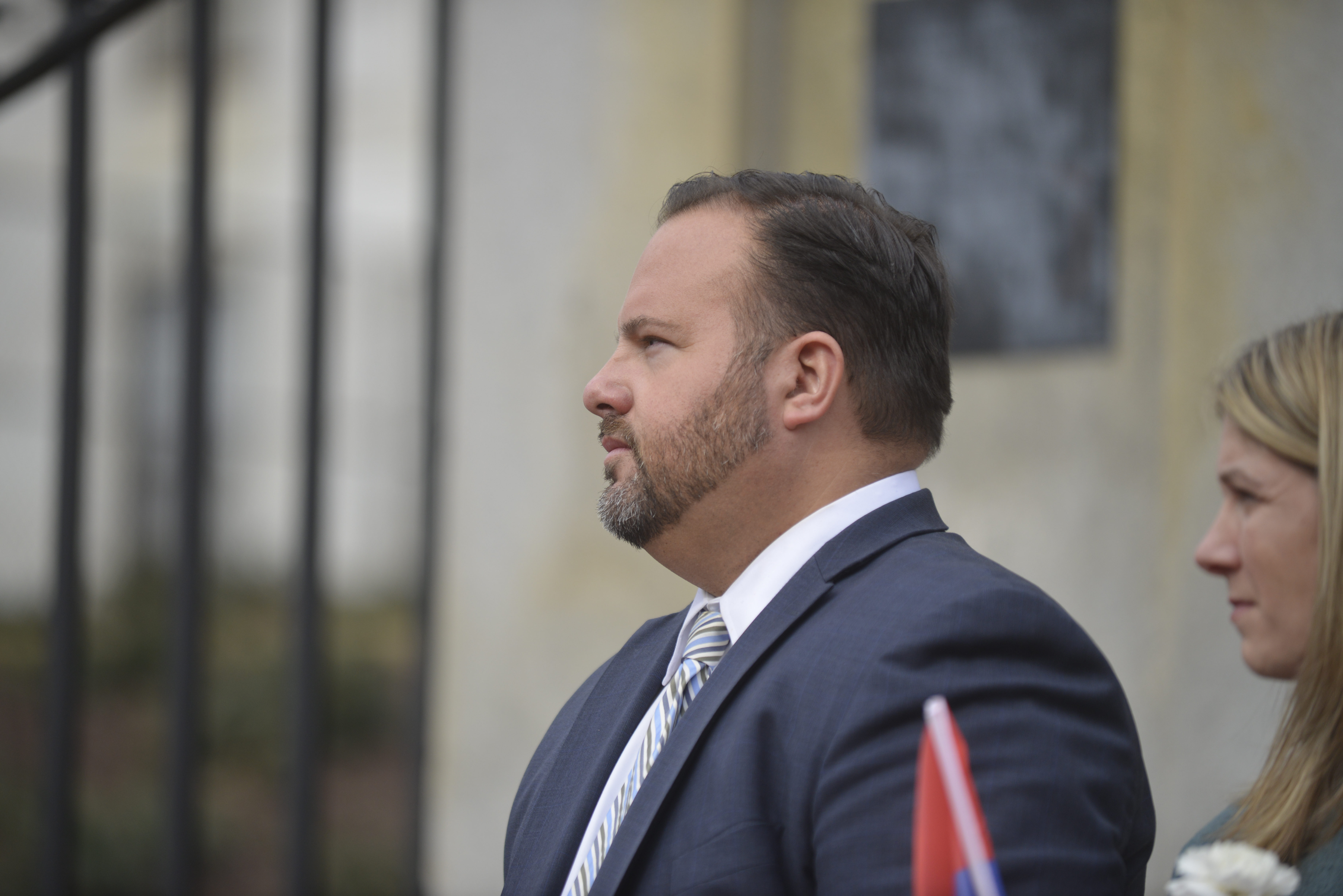
Massachusetts State Representative David Muradian, Jr. served as the master of ceremonies, while fellow state representatives Kate Lipper-Garabedian, Steve Owens and Simon Cataldo as well as State Senator Will Brownsberger attended to show their support of the event. State Rep. F. Jay Barrows sent legislative aide Alex Movsesian to represent him.
Four Armenian clergymen of the Boston area, Fr. Arakel Aljalian of St. James Armenian Church in Watertown, Fr. Vart Gyozalyan of Hye Pointe Church in Haverhill, Fr. Khachatur Kesablyan of Sts. Vartanantz Armenian Church in Chelmsford, and Fr. Vasken Kouzouian of Holy Trinity Armenian Church in Cambridge, began the event with prayers in Armenian and English.
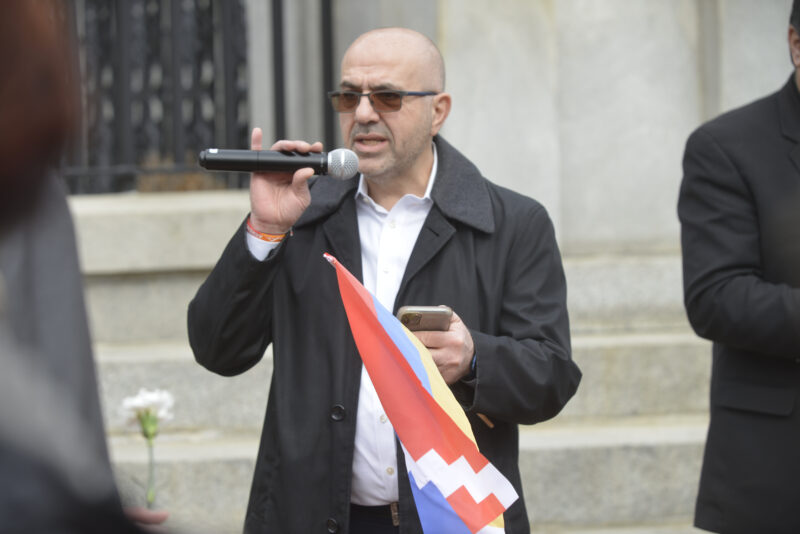
Herman Purutyan, board member and state chair of the Armenian Assembly of America, was the first speaker. Recalling Martin Luther King’s statement that “Injustice anywhere is a threat to justice everywhere,” Purutyan pointed to the blatant injustice of the 67-day blockade of the 120,000 people of the Republic of Artsakh by Azerbaijan. He said that this was a 21st century ethnic cleansing taking place in front of our eyes.
A direct challenge to the United States, this blockade violates Section 907 of the Freedom Support Act of the US Congress. Consequently, Purutyan called for its implementation, requiring the end of US aid to the despotic regime of Azerbaijan. He asked that everyone make their voices heard by their representatives in the federal government, and ask them to push back against the bully President Ilham Aliyev of Azerbaijan and end the blockade.
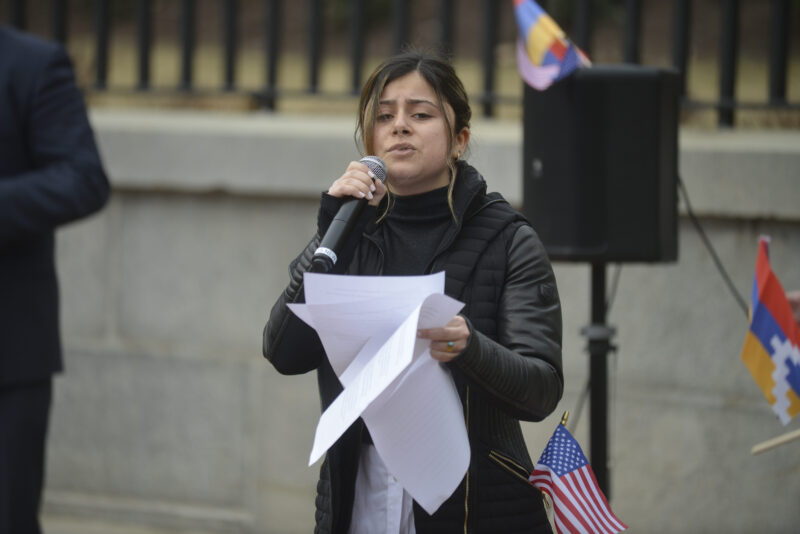
Meghri Dervartanian of the Armenian Revolutionary Federation of Boston observed that the highlanders of the Republic of Artsakh were determined to live on their soil in peace and dignity, with self-rule. She deplored the fact that some 30,000 children in Artsakh were deprived of education thanks to the Azerbaijani government’s blockade and cutting off of energy supplies, making schools unusable during the harsh wintertime.
